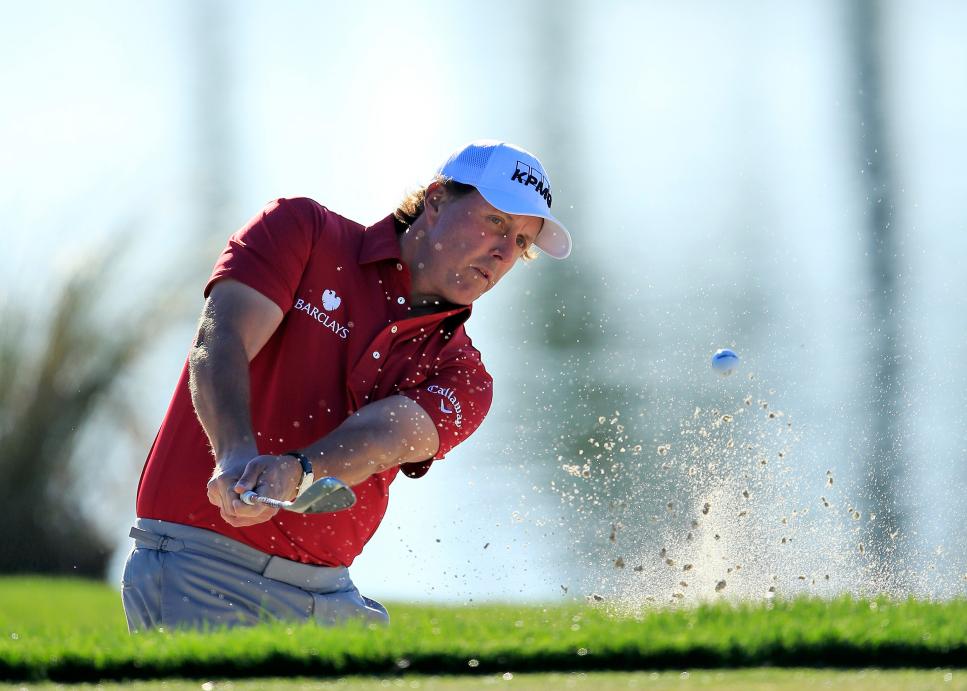It's probably fair to say, at this point, that the Phil Mickelson insider-trading saga has drawn its last gasping breath. Mickelson paid back his Dean Foods profits, he's not being charged by the SEC, and there's really no meat left on this story's bones beyond a lot of speculation. But I couldn't help raise an eyebrow when I read this postmortem:
Thursday’s filing was vindication of sorts for Mickelson, who agreed to pay back the money he earned ($931,000 plus interest) from his purchase of Dean Foods stock prior to an upcoming spin-off announcement.
"The complaint does not assert that Phil Mickelson violated the securities laws in any way. On that point, Phil feels vindicated,” Mickelson’s lawyer said in a statement. “At the same time, however, Phil has no desire to benefit from any transaction that the SEC sees as questionable.”
Few things can tarnish a reputation, particularly a reputation that has been as carefully crafted as Mickelson’s, like a white-collar crime allegation, but give Lefty credit for mitigating the damage.
Two key concepts here: “vindication" and "mitigating the damage."
These are very interesting word choices, but before we delve too deeply into the idea of whether Mickelson has actually cleared his name, let's revisit the facts of the case. I'll try to do this as briefly as possible, and my summary will owe everything to wonderfully comprehensive recaps by the National Law Review and The New York Times. I encourage you to read those pieces, but failing that, here's the bite-size, blog-friendly, 13-point recap:
In other words: Count your lucky stars, Phil.
So let's get back to the idea of "vindication" and "mitigating the damage," because you can bet that Mickelson's lawyers and agents will be pushing that specific narrative over the coming months.
First, "vindication." Unless that word means "hooray, the SEC can't produce any evidence link that proves what many suspect!", then it doesn't apply. In order to be vindicated, there would have to be more proof that Phil is innocent. And if this case were pursued before the Newman ruling, the circumstances for Mickelson might be different.
As for "mitigating the damage" by paying back his profits and interest, the idea doesn't hold up to scrutiny. Phil had to pay the SEC. He doesn't deserve any kind of credit for that.
So let's drop the pretense. As a collective entity, golf journalists should have the guts to say what Joe Nocera of the Times said: Looking at the facts, Mickelson clearly benefited from the recent change in insider-trading laws. For a golfer who seems to believe that he's the smartest guy in the room wherever he goes, he made a really dumb move, and I'm going to take a wild guess that he didn't know U.S. v. Newman was waiting as a safety net. Furthermore, for a guy who Golf Digest estimates makes more than $50 million a year in winnings and endorsements, why would he risk his neck for a profit that falls short of what he'd make for filming a single commercial? What kind of decisions has he been making?
These are the questions we should be asking. So when the "vindicated Phil" narrative starts gathering momentum, as it inevitably will, please don't believe it. Lefty got lucky, and that's about it.


